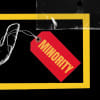The Education Antidote to Violence
In an article titled "The Education Antidote to Radicalisation," published on December 30, 2015 in The Daily Star, former British Prime Minister, Gordon Brown, proposes education as a remedy for the radicalisation of young Muslims. His article is, unfortunately, not only superficial but also grossly misleading because of its sweeping over-generalisations based on inappropriate examples. For instance, he mentions that "in the Middle East, half of those aged 18-25 are either unemployed or underemployed," claiming that this situation, along with the millions of unemployed children in the region, creates a fertile ground for recruitment of fighters for Daesh or the Islamic State. Then, without any cogent reason, he concludes that "we will need . . . to convince nearly 200 million young Muslims that extremism is, quite literally, a dead end." It is very true that extremism is a dead end but Mr. Brown does not tell us who those 200 million young Muslims are. Hence we can assume, as he lumps together Arabs and non-Arabs offhandedly in his article, they must be young people in the Muslim population of the world, because the Arab population is only around 385 million. What he fails to realise is that Islam is not a monolithic religion. It has been accepted by people in far flung countries in Asia, Africa, and Europe who have languages, cultures, and histories of their own. Non-Arab Muslim countries may have incorporated some virtues of Islam into their cultures but they are certainly not concerned with the politics or unemployment problems of Arab nations, just as Arabs are not concerned with the political and social issues of non-Arab Muslim countries. The country with the largest Muslim population, Indonesia, has proven that very fact by refusing to join the Saudi Arabia-led coalition of 34 Muslim-majority countries to fight extremism.
Mr. Brown not only misleads his readers with his assertion about young Muslims, painting people in vastly different cultures with a broad brushstroke based on the social situation in the Middle East, but also skirts the roots of extremism by giving simplistic examples of educating the young to counter extremism. For example, he writes about children's magazines, videos, radio shows, and books in Pakistan and Arab countries that oppose al-Qaeda and expose the brutality of Daesh. These are no doubt commendable means to show the cruelty of these groups, but curious students, as students should be, would like to get to the bottom of things and want to know how these groups came into existence. These groups, irrespective of their names, harbour the same ideology - the ideology of jihad. And this jihad started in Afghanistan with the mujahideen, the ignorant peasants who opposed modernisation and women's education promoted by the People's Democratic Party of Afghanistan (PDPA). They turned a political issue into a religious one for broader support because PDPA was backed by then Soviet Union, claiming that Afghanistan was being turned into an atheistic society. This false propaganda drew thousands of fanatics, especially Saudi Wahhabis, into Afghanistan. The United States took full advantage of this situation and launched Charlie Wilson's War, supplying the mujahideens with thousands of Stinger missiles and billions of dollars to "sow shit in the Soviet backyard," as Pankaj Mishra writes. So it is the West that helped the mujahideen, Charlie's soldiers, to come to power in Afghanistan, from where their tentacles fanned out under different names to different countries carrying out terrorist activities like bringing down the World Trade Center in New York City on September 11, 2001. Thus the "shit" that the US had sown in the Soviet backyard was splattered in America's front yard and Charlie's soldiers became terrorists in American parlance.
Consequently, the US went after the terrorists, the Taliban government in Afghanistan, in 2001, giving birth to the Pakistani Taliban. And after the US invaded Iraq in 2003 with the help of Britain, making a false claim of Saddam Hussein possessing weapons of mass destruction, and removed the Sunnis from power, Daesh was formed in 2004. So these groups came to power as a result of the actions of the West, which tries to undo other societies for the interest of its rapacious military-industrial complex and set up puppet governments with poodles in power to do its bidding.
Daesh's revolting barbarism is reminiscent of that of the US in Iraq's Abu Ghraib prison. Neither has a moral high ground because violence is their mantra. The truth is that groups like al-Qaeda and Daesh are not about religion at all, just as the West is not about democracy. These are convenient masks for them to justify their violent behaviour. The jihadis wish to establish their hegemony, or Arab imperialism, killing dissenters in the name of religion just as the West wishes to establish its hegemony, or Western imperialism, toppling governments in the name of democracy. The Western hypocrisy is apparent in – just to mention two examples – the toppling of the democratically elected Mosaddeq government in Iran in 1953 and that of the Salvador Allende government in Chile in1973, which led to 17 years of Pinochet's brutal military dictatorship. When the West's greatest weapon is violence, how can Mr. Brown hope to "win the war of ideas"? His patronising words sound hollow at best, because violence is for those who have no ideas.
Mr. Brown, however, hits the mark when he claims that the hearts and minds of people cannot be won through violence but education. However, fruitful education requires an understanding of the source of violence just like a medicine to be effective requires knowledge of the cause of a disease. And the prime cause of this disease called violence is a desire for hegemony. So the chief perpetrators of violence - those toppling governments from Latin America to Africa to Asia, helping or producing groups like al-Qaeda, Taliban, and Daesh - or installing dictators or puppets in power to cause misery to millions – are the ones most in need of education. The US has made over 200 military incursions into other countries since World War II; the brilliant American intellectual Gore Vidal thus aptly calls the US the "barbarian horde". Shouldn't the young Muslims be educated on the views of the best American minds? Or should they be kept ignorant of the world so that they can be exploited like the unlettered mujahideen in Afghanistan? Mr. Brown makes no mention of that in his article.
To avoid being exploited by vested domestic or foreign interest, the ignorant and backward jihadis must be educated to be self-respecting individuals who will value life, not death; who will make the best of their lives to contribute positively to the world instead of sacrificing themselves for the hegemony of others. Education is also needed for the dictators and poodles who crave power at any cost to serve foreign masters, as we see in Syria, where the US and Russia are vying to defend their strategic interests, taking advantage of the uncompromising nature of Russia-backed Assad and US-trained radicals, while thousands die and millions flee the country. Last but not least, education is crucial for all young people so that they can grow up to be conscientious men and women who will not cause misery to their fellow humans for hegemony or for the interest of their military-industrial complex by wearing the mask of democracy or religion. They must understand that a common thread binds all religions. To gain that knowledge, students have to be educated – in schools, seminaries, madrasas, and other religious institutions – on the philosophical basis of God. As I have written elsewhere, God is the symbol of goodness. It is a moral concept that comes from the Indo-Aryan Vedic religion, where it is represented by Indra. This concept was borrowed by the Persian prophet Zarathusra, who called it Ahura Mazda (or Ormazd), later borrowed by Jews and Arabs.
Thus, proper education on God and religion will help people to refrain from violence. Then Mr. Brown's hope that "the young people of the Middle East and the rest of the Muslim world [would] share the aspirations of young people in every other part of the world" would materialise, because in that case the aspirations of young Chileans and young Afghans, not to mention young Iraqis and young Syrians, would not be smothered by violence for the strategic interest of those who seek hegemony in the world.
The writer is an English professor and educator at the University of Texas Rio Grande Valley, USA.
Email: [email protected]

 For all latest news, follow The Daily Star's Google News channel.
For all latest news, follow The Daily Star's Google News channel. 








Comments